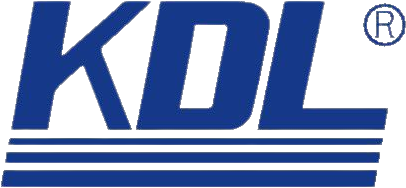
Veterinary syringes are essential tools in animal healthcare. They’re used across various treatments, from vaccinations to fluid administration, and they play a key role in helping animals of all sizes stay healthy. However, choosing the right syringe can be a bit overwhelming due to the wide variety available, each suited for specific purposes and animals.
In this guide, we’ll break down everything you need to know about veterinary syringes. Whether you’re a veterinary professional, an animal caregiver, or just someone curious about veterinary medicine, this guide will provide valuable insights into selecting best veterinary syringe and using syringes safely and effectively.
Understanding Veterinary Syringes
What is a Veterinary Syringe?
A veterinary syringe is a medical instrument designed for administering or withdrawing liquids from animals. These syringes are similar to those used in human healthcare but are often tailored for animals of various sizes and treatment needs.
Common Uses of Veterinary Syringes
Veterinary syringes serve multiple purposes in animal care:
- Medication Administration: Used to deliver precise doses of medication.
- Vaccination: Essential for protecting animals from diseases.
- Fluid Therapy: Administering fluids, especially important in treating dehydration.
- Nutritional Support: Feeding or supplementing animals, especially small pets.
Veterinary syringe are crucial in maintaining animal health, and their versatility makes them indispensable in clinics, farms, and zoos.
Types of Veterinary Syringes
Disposable vs. Reusable Syringes
- Disposable Syringes: Designed for single use, they are sterile and reduce contamination risk. They’re also convenient and prevent cross-contamination.
- Reusable Syringes: Made for multiple uses after sterilization, reusable syringes are eco-friendly but require proper cleaning to ensure safety.
Types of Tips
- Luer Lock: Securely screws on, minimizing the risk of needle detachment during injections.
- Luer Slip: Allows needles to be pushed on rather than screwed, suitable for quick procedures.
- Catheter Tip: Ideal for feeding tubes or larger animals needing high-flow delivery.
- Eccentric Tip: Positioned off-center, useful for shallow injections or angled positioning.
Sizes of Veterinary Syringes
Veterinary syringes come in various sizes, commonly measured in milliliters (mL). Common sizes include:
- 1 mL: Suitable for small doses, ideal for small animals.
- 5 mL: Often used for medium doses, works well for cats, dogs, and similar animals.
- 20 mL: Common in large animals like livestock where larger doses are required.
When choosing a syringe, size matters to ensure accurate dosing and minimize stress for the animal.
Needles for Veterinary Syringes
Needle Gauge and Length
Needle gauge indicates the diameter: the higher the gauge, the thinner the needle. Here’s a quick guide:
- 22-25 gauge: Ideal for small animals and thin liquids.
- 18-21 gauge: Suitable for larger animals and thicker medications.
Needle length varies by application. Shorter needles (½ inch) are for subcutaneous injections, while longer needles (1-1.5 inches) are for intramuscular injections in larger animals.
Types of Needles Used with Veterinary Syringes
Different needle types are suited to specific applications:
- Hypodermic Needles: Standard for injections, available in various gauges and lengths.
- Dental Needles: Used for oral injections or treatments in animals needing precise administration.
Selecting the right needle ensures effective treatment and improves the animal’s comfort.
Read More : Veterinary Hypodermic Needles: A Guide to Types and Uses in Animal Care
Factors to Consider When Choosing a Veterinary Syringe
Selecting the right syringe goes beyond simply choosing a brand. Here are essential factors to consider:
Animal Type and Size
The syringe’s type and size may vary greatly depending on the species and size of the animal. For smaller animals, like cats or birds, syringes with smaller volumes and finer needles are usually more comfortable. Larger animals, such as cattle or horses, may require syringes that can hold a larger volume of medication.
Type of Medication or Treatment
Certain medications require specific syringes. For instance, insulin for diabetic animals should be administered using syringes designed for insulin to ensure accurate dosing. Some medications also require oral administration, making oral syringes necessary.
Volume and Dosage Accuracy
Choose a syringe with an appropriate volume to avoid under-dosing or overdosing. For precise dosing, such as with vaccines or sensitive medications, a syringe with fine volume markings helps ensure accurate measurement.
Needle Gauge Compatibility
The needle gauge impacts both the effectiveness and comfort of an injection. Thicker gauges are suitable for larger animals and thicker substances, while smaller animals require finer gauges to minimize discomfort.
Ease of Use
For veterinarians or pet owners administering medication at home, easy-to-handle syringes are essential. Features such as smooth plunger action, clear volume markings, and secure needle attachment improve the overall experience.
Common Mistakes to Avoid When Choosing a Syringe
Using the Wrong Syringe Size or Type
- Selecting a syringe that’s too small or large for the intended dose can lead to dosing errors. For example, using a large-volume syringe for a small dose may make it difficult to measure accurately.
Ignoring Animal Behavior and Comfort
- Some animals can become stressed or frightened during injections. Choosing syringes that minimize discomfort, such as those with finer needles, can reduce stress and make the experience less traumatic for the animal.
Reusing Disposable Syringes
- Disposable syringes are designed for one-time use. Reusing them can compromise sterility and increase the risk of infections. Always use a new syringe for each injection to maintain safety and hygiene.
Conclusion
Choosing the right veterinary syringe can make a big difference in ensuring animals receive the best care. From the syringe type and size to the right needle, each decision plays a role in treatment success and animal comfort. Whether you’re a vet, a pet owner, or a caregiver, this guide provides a foundation for making informed choices.
Looking for reliable veterinary syringes? KDL offers a range of high-quality veterinary syringes designed to meet diverse needs, helping you deliver safe and effective care for animals.

